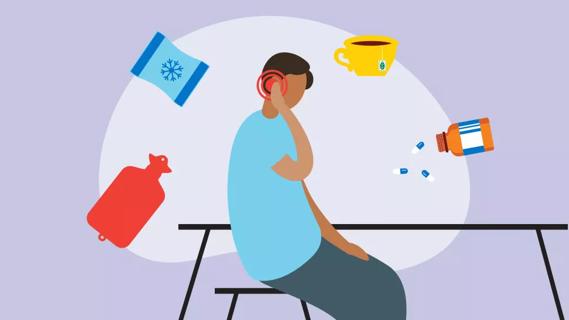Advertisement
If your child is vaping, now's the time to help them quit

Teens and vaping — a troubling combination that’s been in the headlines a lot lately. Add a public health crisis to the equation and this combination has the potential to become even worse.
Advertisement
Cleveland Clinic is a non-profit academic medical center. Advertising on our site helps support our mission. We do not endorse non-Cleveland Clinic products or services. Policy
Recent numbers from the American Lung Association show that the number of teens using electronic cigarettes increased by 80% between 2018 and 2019. It’s not hard to understand why. With the perception that vaping is safer than smoking, vape juice flavors that are enticing to younger users and devices that make it easier to hide their habit, it’s apparent why vaping has become more appealing to teens.
According to pulmonologist and smoking cessation specialist Humberto Choi, MD, teen vaping has far surpassed cigarette smoking. “I think we have to ask ourselves why teenagers are vaping at such high rates — much higher than they have smoked cigarettes in the past,” says Dr. Choi. He believes this increase could be connected to social isolation, depression or even intense social pressure from friends.
“I visit schools and communities that are dealing with the issue of vaping. There are some schools where there’s a very high prevalence of vaping, especially among high schoolers. Sometimes the rates can be as high as 30-50% of students of vaping, so these numbers are dramatic,” Dr. Choi explains. According to Dr. Choi, it’s important that we gain a better understanding of why teens are vaping so we can work towards decreasing those numbers.
Advertisement
“With these high numbers, there are two things that we should worry about. The first one is access and the second one is motivation. I think the regulations on vaping can definitely help curb access, but we still need to understand the motivation. So, we have to ask ourselves why teenagers are vaping at such high rates,” says Dr. Choi.
As with cigarette smoking, vaping can also compromise the respiratory system. This means that people who smoke or vape are more susceptible to lung infections. According to Dr. Choi, recent studies have shown that aldehydes and other components found in vaping liquids can impair the immune function of cells found in the airway and lungs.
“Everything that we inhale goes straight into the airways and into the lungs, which is different from our heart, our liver and our kidneys that are protected. But the lungs are exposed to the environment, so the lungs and the airways do have a defense mechanism against that. What vaping is doing is impairing this defense mechanism for the lungs,” says Dr. Choi.
The ingredients in vaping liquids, especially in flavored electronic cigarettes, can affect cell function in the airways and suppress the lungs’ ability to fight infection. “This increases the chances of having a respiratory infection which is extremely important to keep in mind, especially now when we are still facing flu season — and now that we are in the middle of the coronavirus pandemic,” says Dr. Choi.
As with smoking, secondhand vapor can cause problems for teens who hang out with cloud chasers. “I have seen cases in my office where people had flare-ups of COPD, and asthma because they were in close contact with the vapor from someone who was vaping right next to them,” says Dr. Choi. He adds that some of these cases even escalated to asthma attacks or trips to the emergency room.
Dr. Choi sees teens and adults who still vape despite having chronic respiratory diseases like asthma and COPD. While they know the risks, there’s another factor involved with this perceived act of defiance — nicotine dependence.
“A lot of people who have asthma and even COPD are still smoking. It just shows how strong nicotine dependence can be,” says Dr. Choi. He adds that nicotine dependence can be so strong that it makes it really hard for people to quit smoking or vaping. “So, even if they know that it is dangerous and harmful to their health, they’ll still do it. And this just proves how strong this addiction is.”
In addition to the health issues that Dr. Choi has detailed, vaping can:
Advertisement
Dr. Choi believes that in order to help teens who are vaping, parents must be willing to communicate — and talk about the tough stuff. “Kids already have access to the information, so they know what’s going on. They know more about vaping than their parents or grandparents do. So, it’s important for us to have very open and direct conversations about vaping,” says Dr. Choi.
If your teen is vaping, there are programs in place that were designed to help them kick the habit for good. Dr. Choi helps many people through the Cleveland Clinic’s Smoking Cessation Program. “Although we call it a smoking cessation program, we definitely treat nicotine dependence in all forms, including vaping,” Dr. Choi explains. This program is for all ages and you can sign up for it online as well.
Dr. Choi is very passionate about this cause and he believes that it’s not too late to get your teen to stop vaping. “This is a good opportunity for parents to be very strong parents. And that means having a very open conversation with their kids about vaping. Most kids will listen to their parents and often will open up during the talk,” he says.
What parents shouldn’t do is avoid the topic altogether.
Dr. Choi stresses that avoidance or even denial isn’t the answer. “We don’t want such a young generation to grow up having chronic diseases that they shouldn’t have because all they had to do was avoid exposure.”
Advertisement
Advertisement
Learn more about our editorial process.
Advertisement

These kids’ visits include getting important vaccines and checking on developmental milestones

Just like the flu, COVID-19 continues to evolve every year with new and smarter variants

The latest omicron subvariants carry specific mutations that may allow the SARS-CoV-2 virus to be better at evading immune protection

Research shows the virus can affect your ability to get or maintain an erection

Most males usually stop growing by age 18, but some may continue growing into their 20s

The need for sleep often takes a back seat for teens, but they need eight to 10 hours of sleep to stay mentally healthy, strengthen their brains and prevent injury

Most cases are mild and can be treated at home, but some situations may require medical care or a trip to the ER

Globally, the average height for men ranges from 5 feet 3 inches to 6 feet 0.4 inches, but varies based on a variety of factors

Not all ear infections need antibiotics — cold and warm compresses and changing up your sleep position can help

A glass of lemon water in the morning can help with digestion and boost vitamin C levels, and may even help get you into a better routine